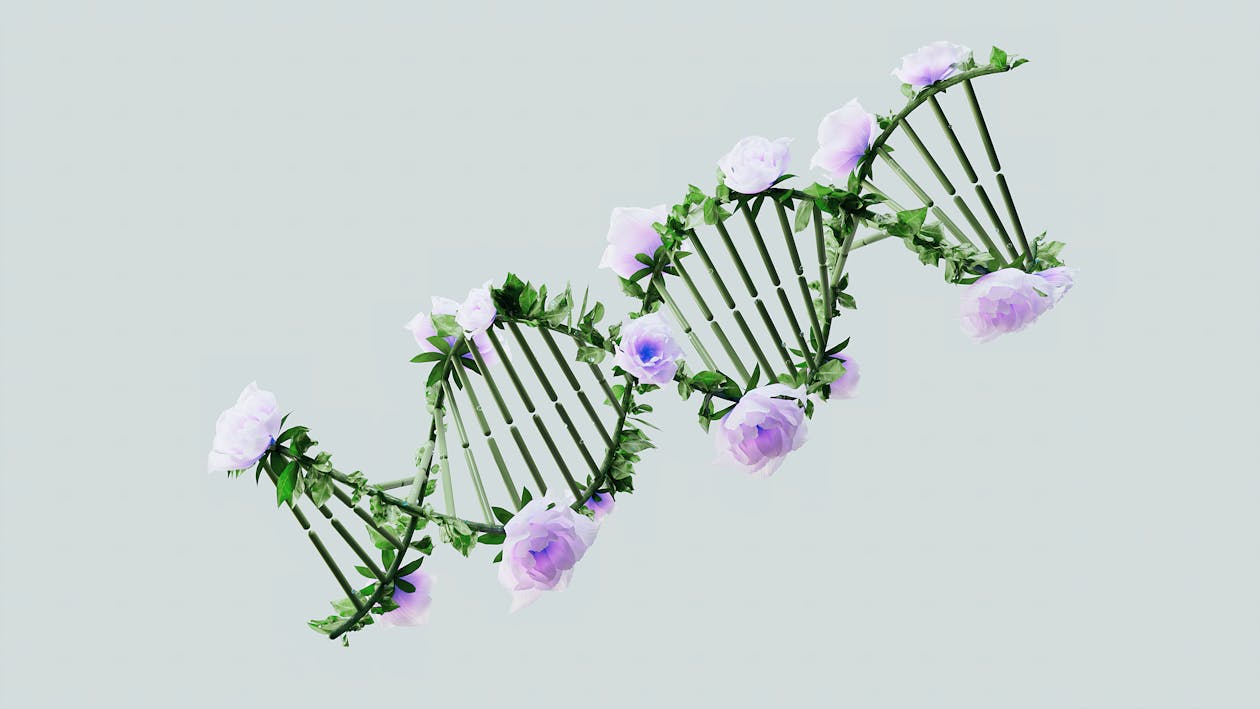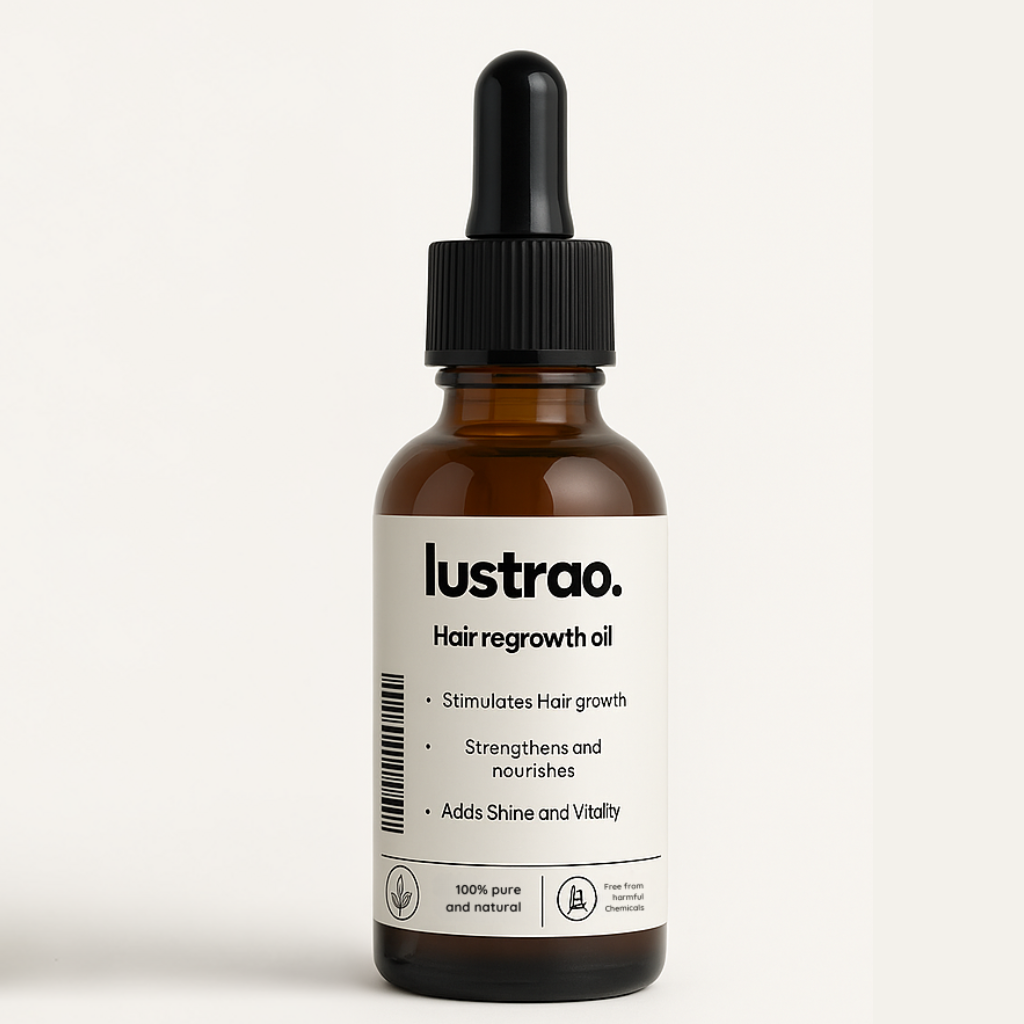
How Hormones Affect Your Hair: What You Can Do About It
In this article, we'll dive deep into how hormones affect your hair and what you can do to maintain healthy hair even in the face of hormonal changes. We’ll also link to related resources on our site to provide a comprehensive guide for managing hormone-related hair issues.
The Science of Hair Growth and Hormones
Hair growth occurs in a cyclical process consisting of three main phases: anagen (growth), catagen (transitional), and telogen (resting). Each of these phases is influenced by hormones, which act as signaling molecules that regulate various physiological processes, including hair follicle activity.
1. Androgens and Hair Growth
Androgens, including testosterone and dihydrotestosterone (DHT), are male sex hormones that significantly influence hair growth. While androgens promote hair growth in areas such as the face and body, they can have the opposite effect on the scalp.
DHT, in particular, is a potent androgen that binds to androgen receptors in the hair follicles, causing them to shrink—a process known as miniaturization. This leads to shorter hair growth cycles and eventually, thinning hair and baldness. Androgenetic alopecia, also known as male or female pattern baldness, is primarily driven by genetic sensitivity to DHT.
A study published in the Journal of Investigative Dermatology found that DHT plays a crucial role in androgenetic alopecia, affecting individuals with a genetic predisposition to this condition. The study emphasizes the importance of addressing DHT to prevent hair loss.
2. Estrogen and Hair Health
Estrogen is a female sex hormone that positively influences hair growth. It prolongs the anagen phase of the hair growth cycle, leading to thicker, fuller hair. This is why many women experience fuller hair during pregnancy when estrogen levels are high.
However, after childbirth or during menopause, when estrogen levels drop, women may notice increased hair shedding and thinning. This phenomenon, known as postpartum hair loss, is temporary but can be distressing.
3. Thyroid Hormones and Hair Growth
The thyroid gland produces hormones that regulate metabolism, energy production, and growth, all of which are crucial for healthy hair. Hypothyroidism (underactive thyroid) and hyperthyroidism (overactive thyroid) can disrupt the hair growth cycle, leading to hair thinning or loss.
According to Dr. Jennifer Ashton, a board-certified OB-GYN and author, "Thyroid hormone imbalances are a common but often overlooked cause of hair loss, especially in women. Ensuring your thyroid levels are within the normal range can help prevent or reverse hair thinning."
4. Cortisol and Stress-Induced Hair Loss
Cortisol, known as the stress hormone, can wreak havoc on your hair if levels are chronically elevated. High cortisol levels can push hair follicles into the telogen phase prematurely, leading to a condition known as telogen effluvium, characterized by diffuse hair shedding.
Dr. George Cotsarelis, a leading dermatologist and researcher in hair loss, explains, "Stress-related hair loss is a significant issue, especially in today's fast-paced world. Managing stress through lifestyle changes can help mitigate the effects of cortisol on hair."
Hormonal Imbalances and Hair Loss
Various factors can lead to hormonal imbalances, contributing to hair loss. Here are some common causes:
- Polycystic Ovary Syndrome (PCOS): PCOS is a hormonal disorder that causes an excess of androgens, leading to hair thinning on the scalp and increased hair growth on the face and body.
- Menopause: The drop in estrogen levels during menopause can lead to thinning hair, as the protective effect of estrogen on the hair follicle diminishes.
- Pregnancy and Postpartum: Hormonal fluctuations during and after pregnancy can lead to significant changes in hair texture, thickness, and growth patterns.
- Thyroid Disorders: Both hyperthyroidism and hypothyroidism can disrupt the hair growth cycle, leading to thinning hair or hair loss.
What You Can Do About Hormonal Hair Loss
If you’re experiencing hair loss due to hormonal changes, there are several steps you can take to manage and potentially reverse the effects.
1. Consult a Medical Professional
The first step in addressing hormonal hair loss is to consult with a healthcare provider. Blood tests can help identify any underlying hormonal imbalances or medical conditions contributing to your hair loss. Conditions such as PCOS, thyroid disorders, and menopause-related changes require tailored treatments.
2. Consider Pharmaceutical Interventions
Medications like finasteride and dutasteride are often prescribed for androgenetic alopecia because they inhibit the conversion of testosterone to DHT. However, these medications come with potential side effects, including sexual dysfunction. For more information on the risks associated with these treatments, refer to our detailed articles on finasteride and dutasteride.
3. Explore Natural Remedies
Natural DHT blockers like rosemary oil, saw palmetto, and peppermint oil have shown promise in reducing hair loss without the side effects associated with pharmaceutical treatments. For instance, Lustrao Hair Regrowth Oil contains rosemary oil and peppermint oil which have been scientifically proven to inhibit DHT production and promote hair growth.
4. Maintain a Balanced Diet
A diet rich in vitamins and minerals, such as biotin, zinc, and omega-3 fatty acids, can support healthy hair growth. Nutritional deficiencies can exacerbate hair loss, so it’s important to maintain a balanced diet that supports overall health.
5. Manage Stress
Stress management techniques, such as yoga, meditation, and regular exercise, can help reduce cortisol levels and prevent stress-induced hair loss.
6. Consider Hormone Therapy
For women experiencing hair loss due to menopause, hormone replacement therapy (HRT) may be an option. HRT can help restore estrogen levels and slow hair thinning, but it’s essential to weigh the benefits against potential risks, which should be discussed with a healthcare provider.
FAQs About Hormones and Hair Loss
Q: Can hormone replacement therapy (HRT) help with hair loss?
A: HRT can help restore estrogen levels in women experiencing menopausal hair loss. However, it’s important to discuss the risks and benefits with a healthcare provider before starting treatment.
Q: Is hair loss due to hormonal changes reversible?
A: In many cases, hair loss due to hormonal imbalances is reversible with the right treatment. Identifying and addressing the underlying hormonal issue is key to restoring hair growth.
Q: Can natural remedies effectively treat hormonal hair loss?
A: Natural remedies like rosemary oil, saw palmetto, and pumpkin seed oil have shown promise in reducing hair loss by blocking DHT. However, results may vary, and it’s important to manage expectations.
Q: How long does it take to see results from hormonal hair loss treatments?
A: Results from hormonal hair loss treatments can take several months to become noticeable. Patience and consistency are crucial for achieving the best outcomes.
Q: Can stress-related hair loss be reversed?
A: Yes, managing stress through lifestyle changes and relaxation techniques can help reverse stress-related hair loss.
Conclusion: Take Control of Your Hair Health
Hormones play a significant role in the health and growth of your hair. By understanding the impact of hormonal imbalances and taking proactive steps, you can manage hair loss and maintain healthy, vibrant hair. Whether through medical interventions, natural remedies, or lifestyle changes, it’s possible to take control of your hair health and minimize the effects of hormonal fluctuations.
For more information on DHT and its role in hair loss, visit our detailed article on DHT. Additionally, if you’re considering pharmaceutical treatments like finasteride, dutasteride or minoxidil, make sure to read our comprehensive guides on the potential risks and benefits of these medications.
Share







